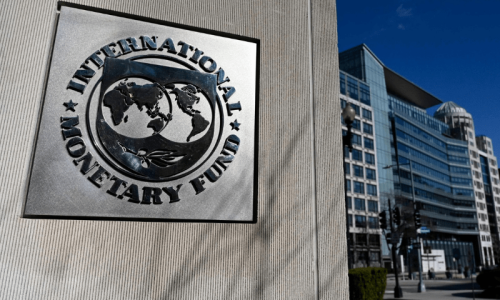WEAKER demand from emerging markets made 2015 the worst year for world trade since the aftermath of the global financial crisis, highlighting rising fears about the health of the global economy.
The value of goods that crossed international borders last year fell 13.8pc in dollar terms — the first contraction since 2009 — according to the Netherlands Bureau of Economic Policy Analysis’s World Trade Monitor. Much of the slump was due to a slowdown in China and other emerging economies.
The data released last Thursday represent the first snapshot of global trade for 2015. But the figures also come amid growing concerns that 2016 is already shaping up to be fraught, with more dangers to the global economy than previously expected.
Those concerns are casting a long shadow over a two-day meeting of G20 central bank governors and finance ministers due to start on February 27. The International Monetary Fund this week warned that it was poised to downgrade its forecast for global growth this year, saying the leading economies needed to do more to boost growth.
The value of goods that crossed international borders last year fell 13.8pc in dollar terms
The Baltic Dry index, a measure of the trade in bulk commodities, has been touching historic lows. China, which in 2014 overtook the US as the biggest trading nation, this month reported double-digit falls in both exports and imports in January. In Brazil, which is experiencing its worst recession in more than a century, imports from China have collapsed.
Exports from China to Brazil of everything from cars to textiles shipped in containers fell 60pc in January from a year earlier while the total volume of imports via containers into Latin America’s biggest economy halved, according to Maersk Line, the world’s largest shipping company.
“What we are seeing right now from China is not only a phenomenon for Brazil, we are seeing the same all over Latin America, declining [Chinese export] volumes into all the markets,” said Antonio Dominguez, managing director for Maersk Line in Brazil, Paraguay, Uruguay and Argentina. “It has been going on for several quarters but is getting more evident as we move into the year [2016].”
There are some signs a rebalancing is under way in places such as Brazil. The collapse in Brazilian imports from China has been accompanied by a rise in exports from Brazil to Asia, driven in part by a 40pc depreciation of the real against the dollar over the past 12 months. “On a global level, most indicators suggest trade growth will remain very weak,” said Andrew Kenningham, senior global economist for Capital Economics. “But we do not believe world trade is about to fall off a cliff.”
Largely because of currency swings and a collapse in the price of commodities, the value of both exports and imports fell in every region last year.
Published in Dawn, Business & Finance weekly, February 29th, 2016















































Dear visitor, the comments section is undergoing an overhaul and will return soon.